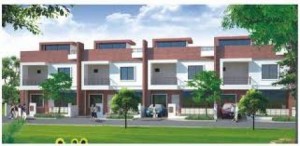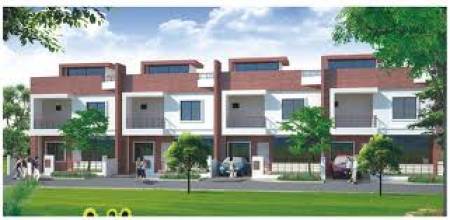 Track2Realty Exclusive: When Prahlad Patel went on a property hunt in the city of Vadodara, the broker had a curious look at his face. Under the impression that Patel is one among the many NRIs looking to invest in the city property with the fall in the Indian currency he thought it is his duty to narrate how the property market is just ripe to enter for sizeable return.
Track2Realty Exclusive: When Prahlad Patel went on a property hunt in the city of Vadodara, the broker had a curious look at his face. Under the impression that Patel is one among the many NRIs looking to invest in the city property with the fall in the Indian currency he thought it is his duty to narrate how the property market is just ripe to enter for sizeable return.
However, the agent was taken aback when this UK-based NRI from Ahmedabad told him that he already has couple of properties in the city and he understands the local market much better. Prahlad Patel is not the only Gujarati NRI active in the property market in this part of the world. Rather he represents the pockets of affluence in the city where the expats interest in the property market here has been beyond the rupee depreciation.
While the NRI money has been much talked about and hyped about subject in the property markets across the country this year, for some of the cities of Gujarat, like Ahmedabad and Vadodara it has been old news.
Much before the depreciation of the rupee generating interest among the NRIs with the lucrative options in the Indian property market, Gujarat has being witness to the NRI investment in general and particularly in the property market. The expats from the state across the world find the market of Gujarat more stable than other speculative markets in the metro cities like Mumbai or Delhi.
Dhaval Ajmera, Director, Ajmera Realty & Infra who has seen the interest level of the NRIs in the city property agrees that NRIs consider Ahmedabad as a more stable market compared to other Indian cities. Over the decade, Ahmedabad has witnessed tremendous investment boost from the NRI market. Many developers hence are coming up with ultra luxurious projects to woo the NRI/ HNI segment.
“With the recent rupee fluctuation, Ahmedabad realty has fuelled a lot of interest and anticipation amongst the NRI’s to invest in this area. The scenario is a win-win situation and it is believed that the investment will fetch better returns, as the rupee is expected to appreciate in a couple of years’ time. Also specific locations like Vastrapur, old city of Shahibaug has seen a drastic transformation. The infrastructure has developed remarkably in these areas with supreme Commercial and residential properties making it a hotspot location for the NRI market,” says Ajmera.
The city of Ahmedabad and Vadodara is the home town to many expat Gujarati’s and with the recent wavering in the denomination of the rupee, they have additional interest in the property market. NRI Gujaratis with surplus wealth are yearning to buy good property in their hometowns. Analysts believe the rupee depreciation has made the homes cheaper for NRIs, compared to local buyers hence there is increase in the NRI transactions now.
Some believe with the current prediction of stability factor in the value of rupee will further lead to infusion of funds from NRIs. Ahmedabad is one of the fastest emerging and budding cities in India. The city is well-known for its vibrancy and its assertiveness towards the spirit of entrepreneurship. Due to the rapid infrastructure development like flyovers, commercial as well as residential boom in the real estate is inevitable. The market has continually been enduring with multiple dramatic changes and thereby facilitating new potential business opportunities for NRI population.
Sam Chopra, Chairman, RE/MAX India says it is seen that about 20 to 30% of all investments in real estate are funded directly or indirectly through NRIs in these markets of Gujarat. According to him, not only the primary market but secondary and rental markets are also influenced by NRIs.
“Yes depreciating rupee has had a positive influence on NRI looking to invest. However, for the NRIs looking to exit their investment and take money back, it has a huge negative influence. They have lost a lot of money due to slow market and rupee depreciation. Still, there are a lot of NRG (Non-Resident Gujaratis) who are from small towns and villages of Gujarat who are settled outside India since a long time. The most conducive city to live in for them is Ahmedabad,” says Chopra.
So, the expats from the rural pockets of Gujarat are also fuelling investment in the markets of Ahmedabad and Vadodara. They have a good reason to focus their investment in Ahmedabad so that they can conduct their business smoothly. Access to quality talent, excellent public infrastructure, low crime rate, high quality power, good governance are a few reasons why Ahmedabad could emerge as a business destination.
Therefore, analysts maintain that NRI investment in the markets of Ahmedabad and Vadodara are beyond the depreciating rupee against the dollar. It may have a catalyst effect in the short term, but NRI investment has always had the maximum share in the markets of Gujarat. What is all the more important form investment point of view is the fact that property markets across Ahmedabad and Vadodara are seen as the safe bets in terms of being stable.
Even during the worst of crisis and correction in many other property markets of India, there has been no visible sign of unrest in these markets. This is something that acts as a traction point for the NRIs who want a safer haven to park the investment and do business in the long term.
The seasoned property agents in these markets understand the buyers like Prahlad Patel who have tasted the market and can not be mislead either. Hence, across the micro markets of major cities of Gujarat, be it Ahmedabad or Vadodara, there is a realistic property listing with not enough room for speculation. Now that is something which acts like a magnet with the power to stand always on the top of the wish list of the NRIs.





